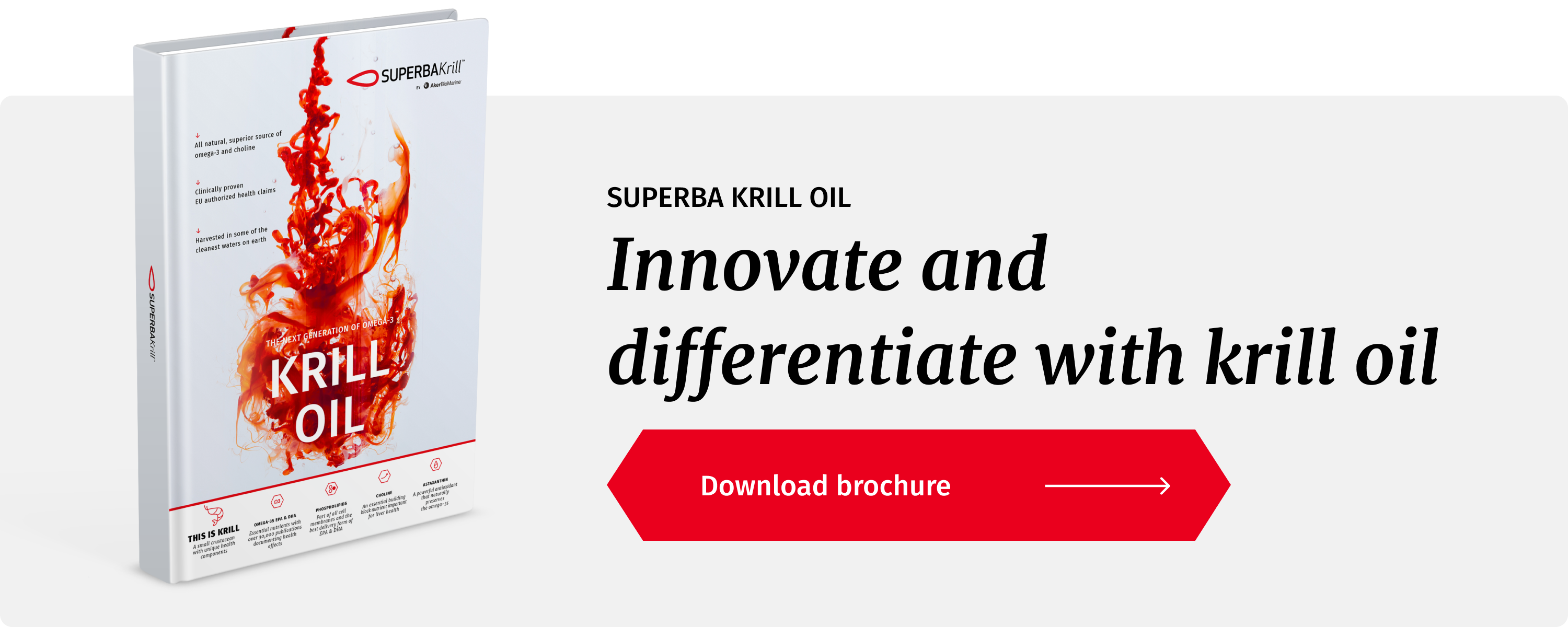Research shows that choline is lacking in the human population. Specifically, the National Health and Nutrition Examination Survey has found that almost 90% of Americans have inadequate intakes of choline. The demand is high, and the supply is developing, but why is this nutrient so important?
What is choline?
Choline is the head-group of phosphatidylcholines – an essential human nutrient – as it holds a wide range of roles in the human metabolism. It is a vitamin-like nutrient crucial for normal cellular function. Many organs such as the brain, liver, kidney, pancreas and muscles all depend on an adequate choline intake.
The current daily recommendation for choline is 425 mg for women and 550 mg for men, according to a study published in the Nutrition Review. Although choline is present in ordinary foods such as eggs, salmon, soybean, beef and milk, it is quite difficult to consume the recommended amounts through ordinary diets. This puts most people at risk of choline deficiency.
Consequences of choline deficiency
Because of the body’s wide-ranging use of choline from neurotransmitter synthesis to cell structure, choline deficiency is found to have an impact on diseases like atherosclerosis, liver dysfunction and possibly also neurological disorders.
According to study published in the American Journal of Clinical Nutrition, choline deficiency is associated with impaired cognitive function, particularly memory loss and Alzheimer disease. This is explained by the fact that choline is the precursor of the neurotransmitter acetylcholine. Acetylcholine is involved in neuronal networks associated with memory. Accordingly, it has been hypothesized that an intake of a choline-containing compound "may help protect the brain from effects of aging.”
These findings also relate to DHA, which is an important omega-3 in brain development and maintenance. Studies indicate that uptake of DHA in the brain is higher when taken in as a phospholipid form as compared to uptake in the fish oil triglyceride form.
Read more: Health benefits of krill
Important for pregnancy
The aforementioned study also indicates that the need for choline is especially high during pregnancy and lactation. The recommended Adequate Intake (AI) for pregnant women is 450 mg/d and 550 mg/d for lactating women. Although the pregnant body has an enhanced capacity to synthesize choline, the demand from the fetus exceeds the stored amount of choline in the body. Additional supply of the nutrient is therefore of high importance.
Read more: 5 things you probably didn't know about krill
Effects on sports results?
Acetylcholine is a signaling molecule important for muscle contractions. Therefore, if enough choline is available in the body, sufficient acetylcholine is produced and utilized during sports activity. However, if not enough choline is available, sports performance could be hampered.
The Oslo University Hospital, Aker BioMarine, the Pure Science Triathlon Team and Norseman have pioneered a study that examines the effects of krill oil omega-3s, containing choline, on athletic performance and recovery. The results thus far are promising, and you can read more about the study here.
This shows that the demand for choline supplements is there – and rising. Krill oil is a great source of choline as it contains a total of 40% phosphatidylcholine. You can learn more about choline and krill oil in our brochure below.


